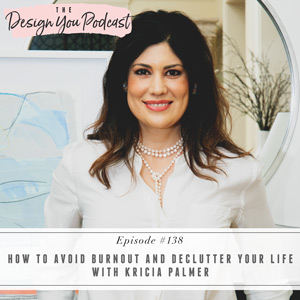
Are you feeling stuck in your business? Are you feeling burnt out and unsure how to work through it? If this sounds familiar, this week’s episode is for you! Today’s guest knows all about trying to balance a career, being a mom, and keeping a clutter-free home, and she joins me to talk about her own experiences with burnout which led her to grow a multi-faceted business.
Kricia Palmer is a medical doctor, life coach, and interior designer who uniquely combines her expertise to serve other women physicians who are overwhelmed in their lives. She’s here today to talk about her journey to growing a successful business, and what she’s learned along the way.
Tune in this week as we talk about the journey of creating a business and providing value for customers, and how to use your life experience in a way to serve others. We discuss the importance of mindset in creating a business and why it can often take a while to realize that the path you’re on is the one you’re supposed to be on. Get ready for this great episode!
If you want help in creating financial freedom and building a business that’s fun and thriving, get on over to the Design You Coaching Program! We only enroll a few times a year, so be sure to sign up for the waiting list ASAP to be notified when we next open our doors!
If you want to keep this conversation going, you have to join my free Design You Podcast community on Facebook. We have great conversations over there about the podcast episodes and our podcast guests are in there too! So head on over and I’ll see you there!





